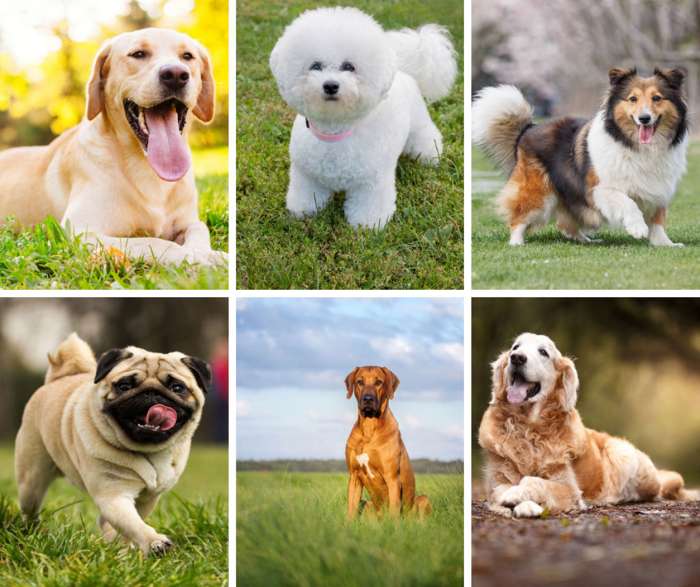Thinking about which dog breed is right for you and your family? Dogs make great pets for kids of all ages, including small children. They are loving, loyal, and great companions, who will not only help teach your children to learn about responsibility but also about unconditional love and respect. Whether you're seeking a cuddly canine or a dog with high energy who wants to be on the go, there's a dog breed for everyone.
More: Is Your Family Ready for a Dog?
From mixed breeds and mutts to purebreds certified with the American Kennel Club, there are so many dogs to consider that could be the perfect fit for your family's new pet. Many factors play a part in choosing what breed of dog will best suit your family's lifestyle and activity level.
Find the best dog breeds for kids with information on size, care, temperament, and energy levels. Use the pros and cons and veterinarian recommendations below to decide which dog breed is right for your family if you're seeking a new pet. Learning about these different types of dogs will help you understand their specific care needs when you begin your search.
Size
What size dog best suits your family? Size has a big impact on an animal’s behavior and actions. Small dog breeds and large dog breeds have different needs when it comes to diet and exercise. The size of your home and yard should be also considered when deciding on the size of dog you want.
Energy Levels
How much energy do you want your dog to have? Are you looking for a sleepy lap dog who loves to cuddle or a fun-loving, energetic running pal who wants a lot of playtime? Canines on this list vary from low-to-high energy pets (one to three paw prints on our energy level scale), though there will be some variance within each individual breed.
5 Signs You Have a Toxic Mother-Daughter Relationship
Raising teenagers is a challenge, and parents seem to report there is unique tension between themselves and their teen child of the same gender. It is very common for the teen years to spiral into a toxic or unhealthy relationship as parents grapple for control and daughters attempt to assert their own needs and desires. Read More
After you determine the characteristics you want in a dog, you can begin your search. Make an effort to meet any dog in person before adopting one. This will give you a glimpse into their personality and needs.
Care
Each dog breed has different needs. Pets need nutritious, healthy meals, though some will eat much more frequently than others. All domestic animals need to be groomed, but some need daily efforts, while others require less upkeep. Know the amount of effort you’re willing to put in before you look to adopt or buy a new pet.
Temperament
Each breed on this family-friendly list has its own personality quirks, so make sure to think about the types of temperament that would blend best with your family. For example, some dogs may be overly affectionate, while some are timider.
Some dogs adapt well to new places and are more easily trainable while others might be more skittish and follow closely to the pack leader before acclimating to the entire pack.
Dr. Teva Stone, a practice owner at Wellington Veterinary Hospital in Wellington, Colorado, weighs in with insight into each dog's temperament and compatibility. She says, "Every animal in a breed can vary on personality — some good and some bad."
Still not sure which dog is best suited for your family? We’ve narrowed the best family dogs down to sixteen different breeds while highlighting important facts about each type to help you make a decision.
Included in our list:
- Bichon Frise
- Dachshund
- Maltese
- Boston Terrier
- Pug
- Keeshond
- Labrador Retriever
- Golden Retriever
- Boxer
- French Bulldog
- Beagle
- Newfoundland
- Collie
- Weimaraner
- Poodle
- Rhodesian Ridgeback
1. Bichon Frise
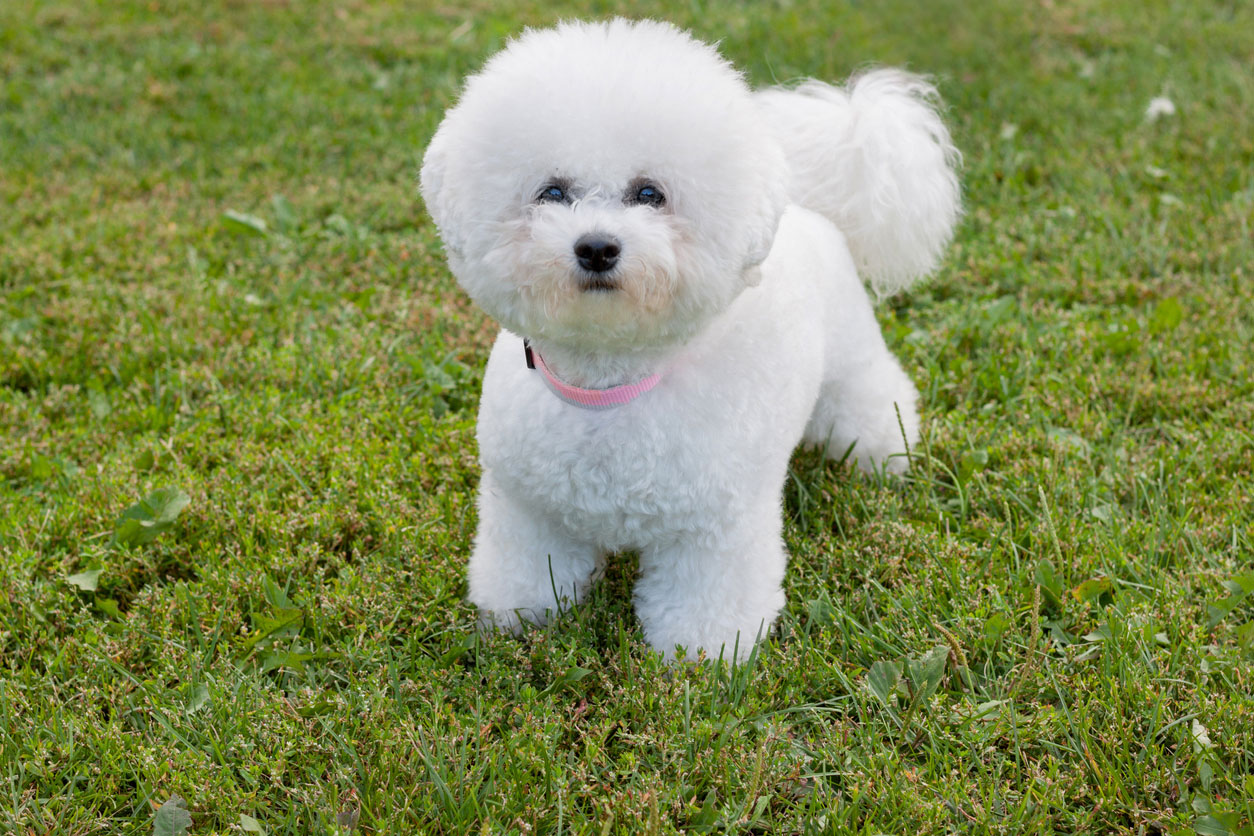

If you want a pet that looks like a fluffy cotton ball, the Bichon Frise may be the dog for you. These pups have been popular throughout history and were popular in the 16th-century French royal courts. Bichon Frise dogs have also made a name for themselves as an American circus dog.
Unlike other small dog breeds who may want to lounge the day away, the Bichon Frise has the energy to keep up with a busy family. With the effort put into regular grooming and consistent initial training, they will make a loyal and affectionate addition to your pack
|
Pros |
Cons |
|
Doesn’t shed |
Requires regular grooming |
|
Adapts well to new environments |
May take longer to house train |
|
Does well with children in the home |
May frighten around rambunctious play |
Vet Recommendation: Bichons are friendly and loving dogs that love to play and are predisposed to allergies. However, they require significant coat care and dental care is important in this breed as well. Bichons thrive in smaller homes.
2. Dachshund


"Weiner dogs," or "doxies," as they're sometimes called, pack spunky personalities in their little bodies. They tend to be loyal lap dogs who love to cuddle and give kisses. The Dachshund hails from Germany, where centuries ago it was bred to hunt badgers.
|
Pros |
Cons |
|
Requires minimal grooming |
High potential for slipped discs in their backs |
|
Bare minimum shedding |
Hunting and digging instincts may lead to destruction |
|
Good watchdogs |
Potentially standoffish or unfriendly to strangers |
Vet Recommendation: Loving dogs, but depending on specific personality they may not be great for very young kids. They are prone to back injuries so care needs to be taken with handling.
3. Maltese
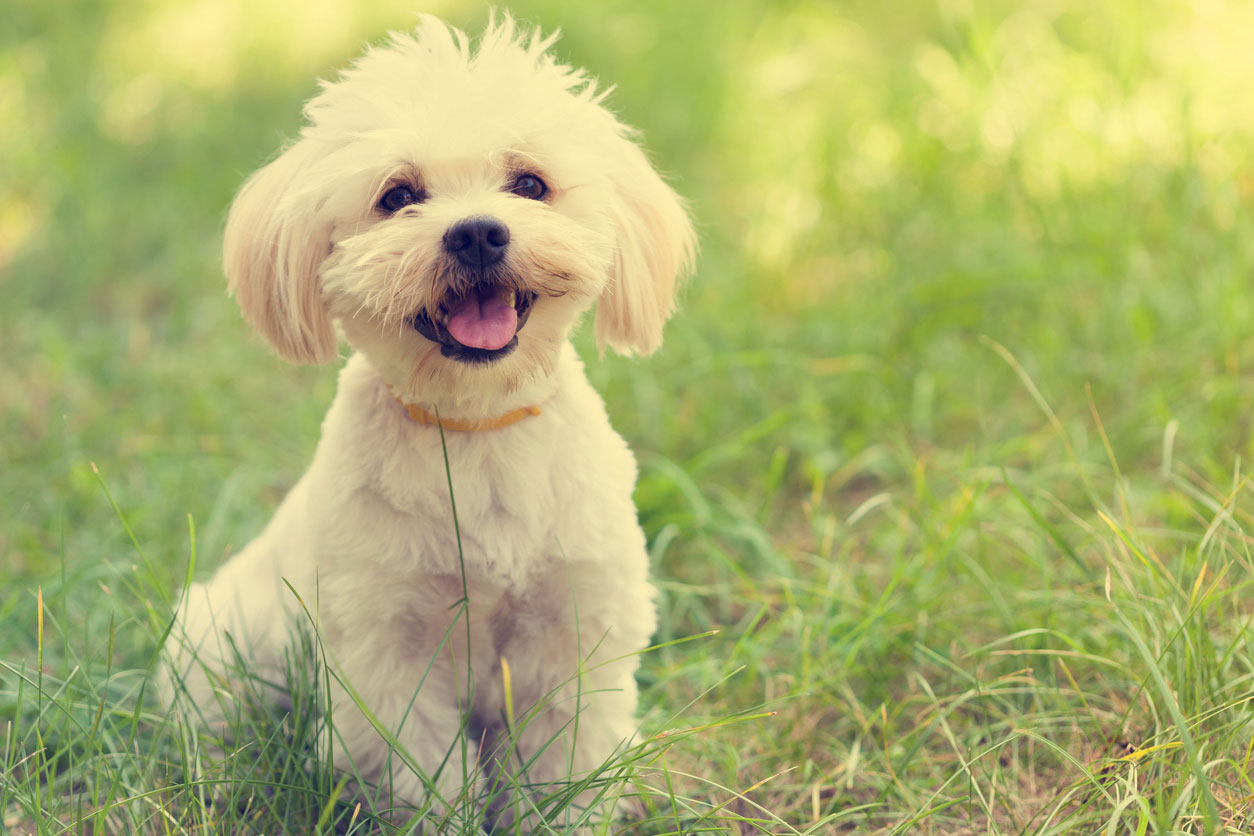

Maltese dogs are generally known to be sweet and gentle pups that aim to please. While they enjoy playing with kids, they are also content to spend downtime inside. The Mal-Shi or Malt-Tzu, a Maltese-Shih Tzu mix, is a hybrid breed that also scored great reviews for its good balance of energy and gentleness.
|
Pros |
Cons |
|
Quite playful — enjoys learning new tricks |
Requires daily brushing and eye cleaning |
|
Good size and temperament for apartment living |
Delicate dog |
|
Active, yet happy to also be a lapdog |
High potential for frequent barking |
Vet Recommendation: They are fun and loving dogs that do well in small spaces, especially apartments. Malteses do well with children if socialized while young. They require grooming and good dental care.
4. Boston Terrier


These black-and-white buddies have the "big-dog" feel of a boxer in a much smaller package. Boston Terriers tend to have a playful yet patient personality and are sturdy dogs despite their small size. The breed originated in Boston in the late 1800s when bulldogs and white English terriers were crossbred. Some consider Boston terriers to be the national dog of America, as it is one of the very few breeds that actually originated in the U.S.
|
Pros |
Cons |
|
Minimal shedding and grooming |
Prone to eye and breathing problems |
|
Gets along well with other pets in the home |
Can be stubborn with training and listening |
|
Well suited for active play with children |
Runs extremely quick. Doesn’t do well off leash |
Vet Recommendation: Boston terriers are a great family dog with high energy. They love to play and do well with children.
5. Pug
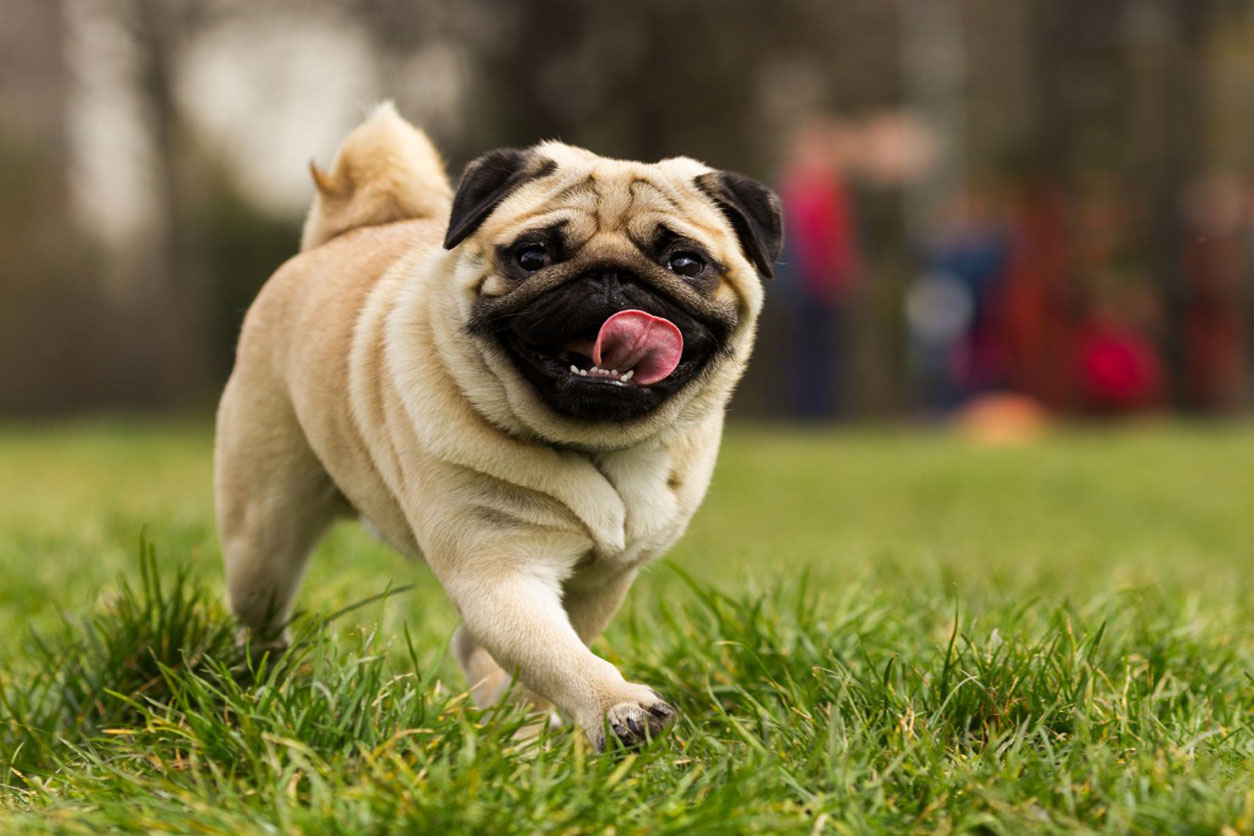

Most pugs love human attention and clowning around, but are also low-key and gentle with kids. Pugs are an easy-to-care-for breed, though they are at risk for health concerns in overly warm weather. Be ready for some snoring and snorting due to their short snout.
|
Pros |
Cons |
|
Outgoing temperament — do well with socialization |
Protruding eyes are prone to trauma |
|
Grooming requires a simply daily brushing |
Tendency to become obese without diet and exercise |
|
Enjoy company from humans; may be quite affectionate |
Not a good guard or watchdog due to friendly demeanor |
Vet Recommendation: Since pugs are sturdy dogs, they make for good for good family dogs. They are loving and great with kids. Pugs can play intensely and snuggle just as hard, but they need plenty of exercise to stay healthy.
6. Keeshond


The fluffy Keeshond is an attention-craving, family-friendly breed that looks like a smaller version of a Samoyed or Husky. They often appear to be smiling, and some look as if they’re wearing glasses, due to the colored-fur difference surrounding their eyes. Keeshonds quickly adjust to being part of a family and are generally great playmates for kids.
|
Pros |
Cons |
|
Easy to train |
Intense shedding period twice a year |
|
Will bark to alert family of something, but they are not nuisance barkers |
High demand for attention; doesn’t do well with family who are frequently out of the home |
|
Quite friendly to both humans and other dogs |
May overheat in very warm climates |
Vet Recommendation: They are great family dogs that are intelligent and loving.
7. Labrador Retriever
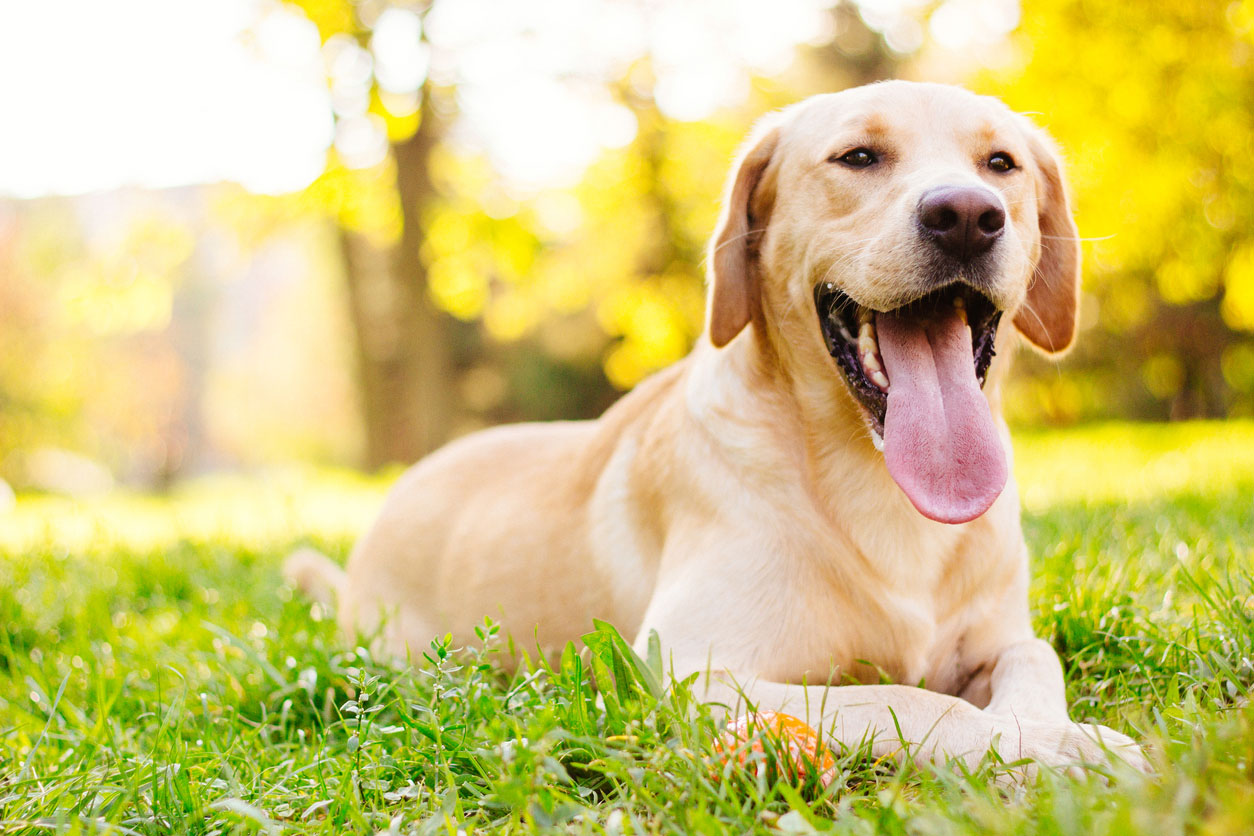

Black, chocolate, and yellow Labrador retrievers are another popular breed. They're a good fit for active families who enjoy a lot of outdoor time swimming and playing in the snow. While generally gentle, their big bodies and strong, wagging tails may knock small kids over. Because labs are so popular, there are many labs and lab mixes available in shelters to adopt, though they can also be purchased from a licensed breeder.
|
Pros |
Cons |
|
Good with other humans, children, dogs, and other pets |
High shedders |
|
Quite intelligent, and do well as service, therapy, or assistive dogs |
Require intensive exercise |
|
Easy to train |
High potential for destructive behavior to get out excessive energy |
Vet Recommendation: Labs are wonderful family dogs. They are good for active outdoor families that love hiking, camping, and water. They need exercise regularly to maintain a healthy weight and mentally happy.
8. Golden Retriever
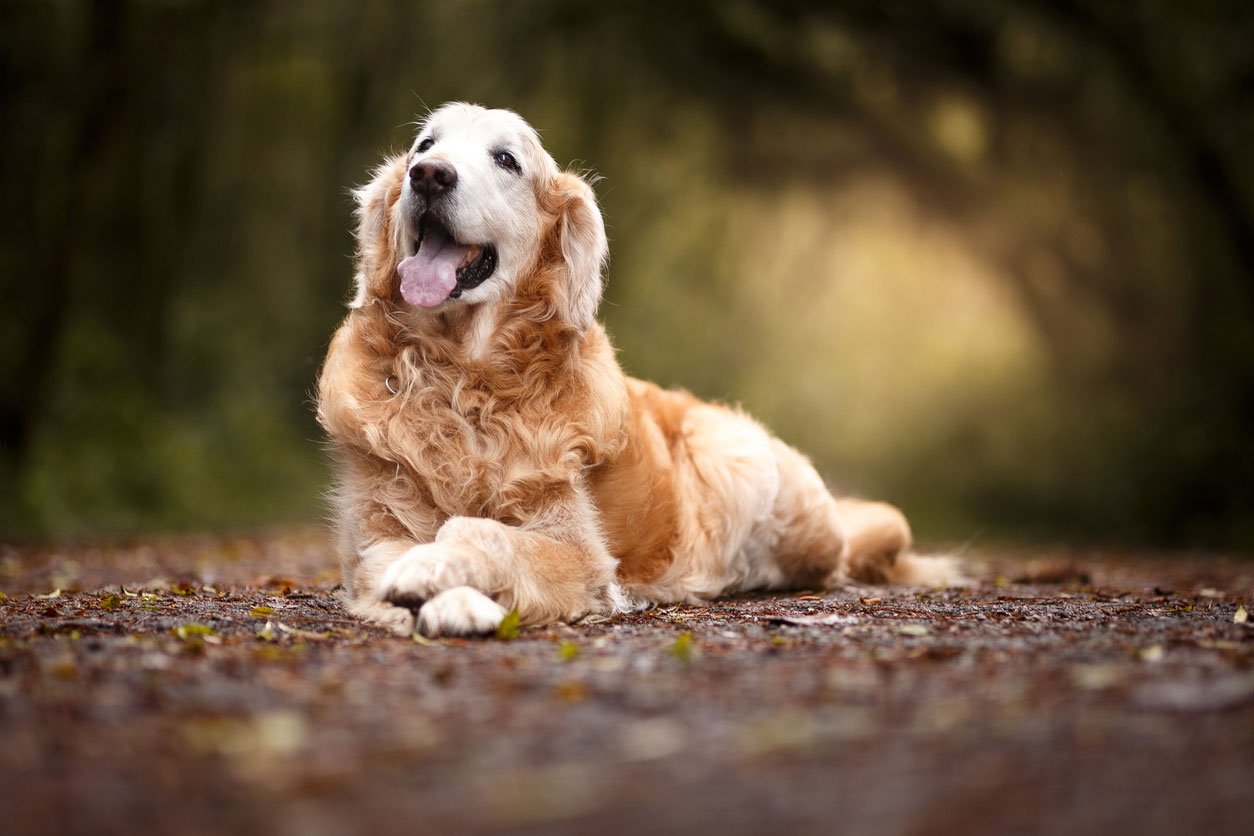

A common choice for a family dog, the golden retriever is thought of as one of the most friendly, fun, and sweet breeds. Their sometimes boisterous personality make them prone to roughhousing, so they may be better for slightly older kids. Golden retrievers were bred to hunt birds, particularly waterfowl, so this canine enjoys swimming and running.
|
Pros |
Cons |
|
Easy to please — does well in training |
Requires higher than average daily exercise |
|
Gentle nature with children |
Minimal guard or watch dog instincts |
|
Adapt well to any size home - even small apartments if they are exercised daily |
Higher than average amount of shedding |
Vet Recommendation: Golden retrievers are another amazing family dog that are loyal and loving. They are great with small kids and all lifestyles.
9. Boxer


Boxers have a tough and muscular look but are gentle giants. They do so well with children that some may even begin to think of the kids as their own. Boxers need plenty of walking and exercise, but generally like being inside, unlike some other large breeds.
|
Pros |
Cons |
|
Extremely affectionate and able to blend well in any family |
Doesn’t do well with extreme hot or cold temperatures |
|
Will adjust to any living circumstances so long as it has appropriate exercise |
High needs to expel energy |
|
Their coats are easy to care for and require light grooming |
Some drool excessively and also snort and snore |
Vet Recommendation: Boxers are high-energy dogs that loves to play and require exercise.They are great with kids of any age
10. French Bulldog


Do you live in a small space? The French bulldog might be the perfect addition to your family. Not only does this pup do well living in small spaces, but it is overall low maintenance. This popular dog is known for its bat-like ears and muscular frame.
|
Pros |
Cons |
|
Doesn’t bark often unless something really sparks their interest |
May compete with children for adult attention |
|
Requires low to moderate exercise |
Not a good choice for a family with an extremely active lifestyle |
|
Easy to groom |
|
Vet Recommendation: French bulldogs are loving and lower on the energy scale; however, they can get very excited at introductions. They are great dogs for smaller homes, but can become destructive when bored or alone. Crate training is advised.
11. Beagle


If you’re searching for a curious pup to explore the world with — even if the “world” is just the nooks and crannies of your small town — a beagle is the pet for you. Known for their curious nature, these hunting dogs enjoy roaming, so keep an eye out that they don’t explore too far from you!
|
Pros |
Cons |
|
Loves companionship and prefers to be with people or other animals |
Can be highly destructive when left alone for long periods |
|
Easy to care for and groom |
May howl nonstop when left alone |
|
Adjust well to living with a human family, even if there are other pets |
Difficult during obedience training or housebreaking |
Vet Recommendation: Beagles are great with families. They don’t require a lot of exercise, but can keep up if in an active family. They will bark at unfamiliar things and can be standoffish with new people but will quickly warm up.
12. Newfoundland


Need a nanny dog for your children? Look no further than the Newfoundland. This breed adores a family with children. These extremely large pets are docile and adjust well to homes with large yards or space nearby to exercise.
|
Pros |
Cons |
|
Extremely protective — make for good watch and guard dogs |
High potential for shedding and drooling |
|
Extremely tolerant of young children |
Requires consistent grooming to care for fur and nails |
|
Requires low to moderate exercise |
May become overweight and sluggish without human prodding to exercise |
Vet Recommendation: Newfoundlands have a calm disposition and are great with children of all ages, although they may inadvertently knock over smaller children. They require frequent grooming and coat care.
13. Collie
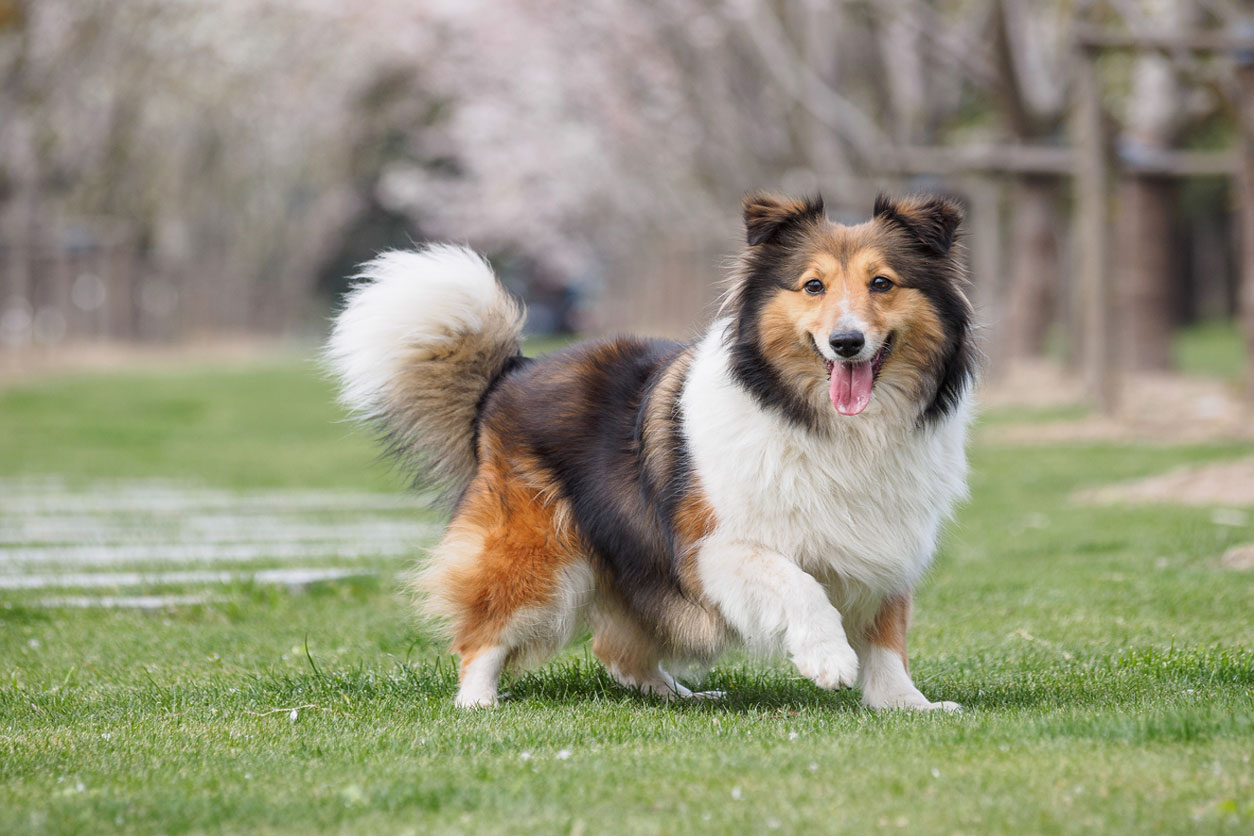

Anyone who grew up watching Lassie will know that collies make the perfect family pet. They are both extremely intelligent and loyal and love even the smallest humans. Collies are social dogs, especially if socialization is a focus of training. However, they can be quite protective of family members — especially children — around new people, so calmly introduce acquaintances right away!
|
Pros |
Cons |
|
Their gentle nature suits families with young children |
Potential for high shedding |
|
Highly intelligent and easy to train |
Quite protective of the children, especially with strangers |
|
Social with other humans and animals |
May bark excessively if left alone for long periods. |
Vet Recommendation: Collies are intelligent and loyal dogs that are great with families.
14. Weimaraner
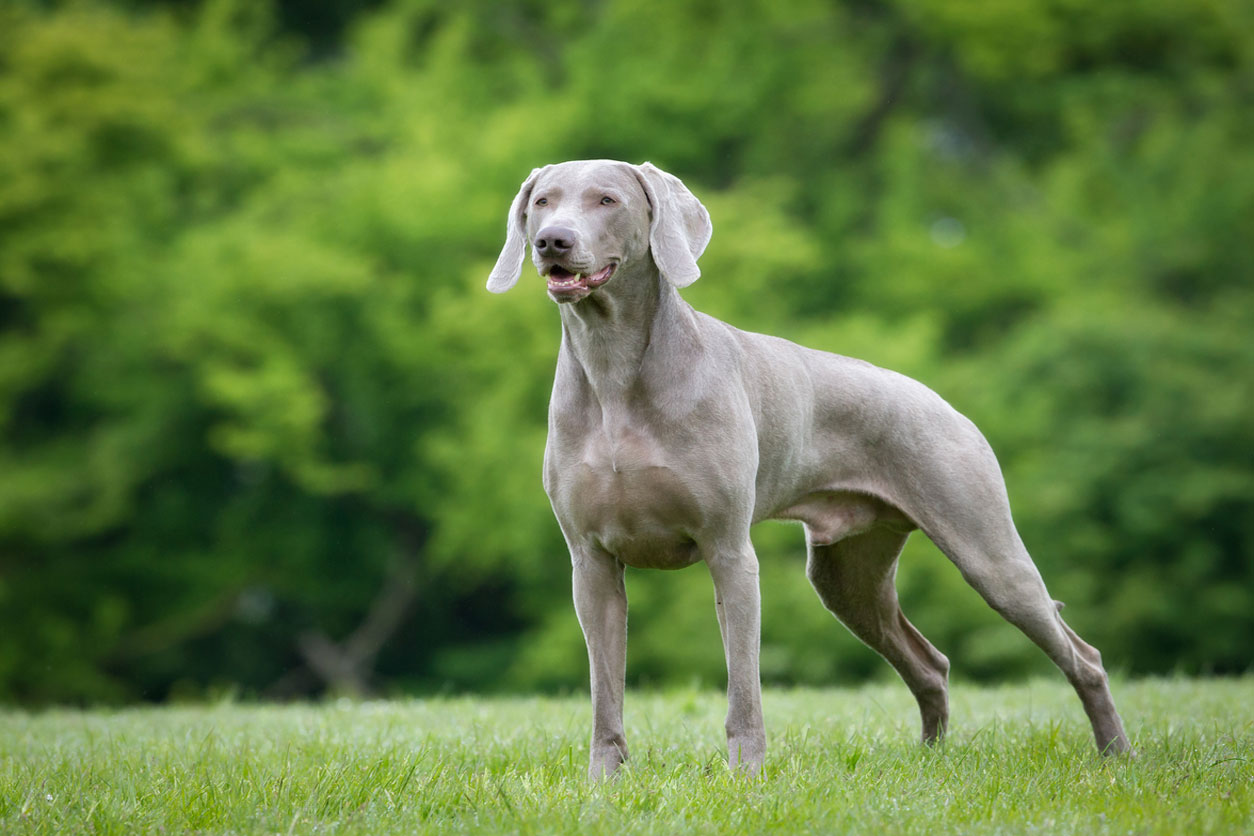

Weimaraners are highly active dogs who do well with families that like to spend time outdoors. These intelligent pups are easy to train and enjoy many activities, including hiking, long walks, and hunting. They got the nickname “Grey Ghost” due to their beautiful, sleek grey fur and quick instincts.
|
Pros |
Cons |
|
Enjoy households with children to play with |
Require attention and active lifestyle to keep from being destructive |
|
Requires very simple, light grooming |
Doesn’t do well with other household pets such as such as rodents, birds, reptile, or even cats |
|
They are good watchdogs |
Shouldn’t be left alone for long periods — may try to escape |
Vet Recommendation: Weimaraners are very high-energy dogs appropriate for active families. They require significant exercise. They are not independent, they love to be with their people.
15. Poodle


Poodles are popular pets for owners who may suffer from allergies, as their fluffy coat is hypoallergenic. Poodles come in three sizes and colors — small, medium, large, and white, black, and apricot. Poodles are known for their intelligence and will make for an easy-to-train pet in any family.
|
Pros |
Cons |
|
Beautiful and easy-to-design fur that can be styled |
Need frequent professional grooming so hair doesn’t develop a painful mat. |
|
Easy to train |
May be aggressive or standoffish to strangers |
|
Low-shedding and hypoallergenic for families where allergies are a concern. |
May nuisance bark if not given enough attention |
Vet recommendation: Intelligent and easy to train, these hypoallergenic dogs are a good choice for family members who have allergies. Poodles need frequent grooming and a lot of attention.
16. Rhodesian Ridgeback


This gentle giant makes for a great family pet. Though they can be lazy, the Rhodesian Ridgeback is both quiet and gentle. However, that doesn’t mean this breed won’t protect the family. This hunting dog was bred to protect humans.
|
Pros |
Cons |
|
Easily trained |
Dominance issues may arise with more than one male dog in the home |
|
Very tolerant and gentle with children and adults |
Large frame and playful activities may knock down smaller objects (children or smaller pets) |
|
Minimal shedding |
Prone to overeating with the potential for obesity |
Vet Recommendation: These dogs do well with active families. They are intelligent and loyal. They can be protective of their family and make good guard dogs. They can be stubborn and require training and continued correction.
What's Next In My Dog Search?
So, what breed is the best for your family? With all these options, it can be difficult to choose. Consider narrowing down your search to just a handful of breeds. Then, check with local breeders, animal shelters, and rescue organizations to see if there are any of your favorite breeds available to meet. Bring your whole family to make sure that everyone’s personalities mesh well. Some organizations will even allow you to foster a dog for a short period to do a trial run of living together.
In addition, there are many online sites that can help you to find a dog based on your specific qualifications. Check out Petfinder, AdoptAPet, and PetSmart Charities.
Take your time when making a decision. You, your family, and your pet have a lifetime of companionship ahead of you.
Also, check out: 4 Benefits of Owning a Dog For Families.

